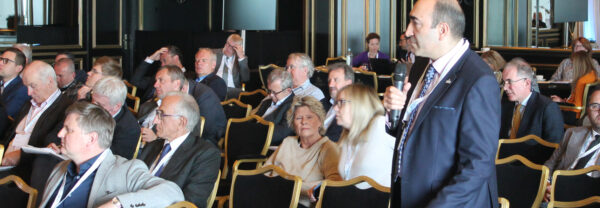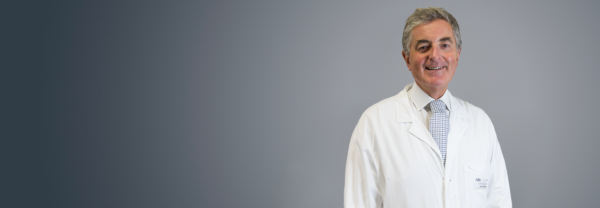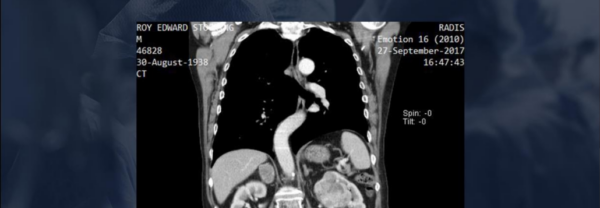European Board of Urology welcomes new President
While the EAU and the European Board of Urology (EBU) have to maintain a formal distance when it comes to accrediting events and education, there is also scope for the two bodies to collaborate, says the EBU’s new President, Prof. Jeroen Van Moorselaar (Amsterdam, NL).

“Collaboration can come in small things,” says Prof. Van Moorselaar, “like supplying cases for use as exam questions, to representing the field of urology in certain international organisations, and, most broadly, the shared goal of raising the quality of urological care throughout Europe.”
Prof. Van Moorselaar succeeded Prof. Arnaldo Figueiredo (Coimbra, PT) in May 2021. Van Moorselaar is currently the Chairman of the Amsterdam UMC Urology Department, having previously worked in Utrecht and Nijmegen, all in the Netherlands. Van Moorselaar is a Fellow of the EBU (FEBU) since May 2000.
Over the years, Prof. Van Moorselaar has had many positions related to the EAU and EBU. These include acting as National Coordination Office for the European Society of Residents in Urology (ESRU), Chairman of the EAU Video Committee (2004-2012) and being a faculty member of EUREP while also continuing to sit on the board of the European School of Urology.
A mission
The EBU is made up of three committees, for Examination, Certification and Accreditation. The first draws up high-quality exams that reflect European standards for the annual In-Service Assessment, and the Written and Oral parts of the EBU Exam. Those who successfully complete their exams can call themselves “Fellow of the European Board of Urology”. The exams also have an official certification status in some countries, being held in place of national urology exams.
The Certification Committee aims to standardize urological training at the highest possible level, reviewing applications of training programmes, performing site visits and constantly updating requirements for certification programmes. This certifies centres offering residency training or acting as an EUSP Host Centre. Van Moorselaar:
“There is currently a big difference in levels of training across Europe, also depending on the amount of hands-on experience that residents get as part of their training. We think that by visiting and eventually certifying these centres, they improve their levels of training and reach a de-facto European standard.”
Finally, the Accreditation Committee works to accredit educational events for Continuing Medical Education (CME) and Continuing Professional Development (CPD). In this capacity the EBU works on the recommendations and Learning Objectives in Urology of the European Union of Medical Specialists (UEMS) and the European Accreditation Council for CME (EACCME).
Furthermore they work on the Training Requirements for the Specialty of Urology for trainers, trainees and training institutions as part of the European Standards of Postgraduate Medical Specialist Training. National urological societies delegate two urologists to form the EBU board at large, including the aforementioned three boards and also an executive board.
The Virtual Oral Exam
In times of the worldwide pandemic, the traditional oral component of the FEBU exam had to be postponed in 2020, creating a backlog of candidates. For 2021, the EBU arranged for a virtual alternative to the on-location exams.
Van Moorselaar: “This was an incredible challenge for us, but I have to commend Prof. Serdar Tekgul (Ankara, TR), chair of the Examination Committee for his efforts. We had to recreate examination conditions in a virtual setting, with case presentations, limited times to answer, and recording and reviewing of all responses.”
“All questions/cases are pre-recorded in a candidate’s native language (one of ten this year). The candidate’s answers are recorded and then reviewed by two reviewers, with a third one on hand if the scores differ too much. In 2021, there are 120 reviewers for 590 candidates, which means they review or otherwise screen around 10 each.”
“We had the virtual exam in November, and are anticipating the results of this innovative new method. A lot of other organisations within the UEMS are watching our lead in this.”
Putting the EBU on the map
Prof. Van Moorselaar realizes that EAU members might not be intimately familiar with the EBU, but he stresses that there are areas of overlap and certainly several opportunities for EAU members to contribute to and benefit from the activities of the EBU.
“It’s true, as a regulatory body we are less visible, but we are very busy behind the scenes,” says Van Moorselaar. “People who work in the EBU are extremely dedicated and some have been there for many years.”
“One important way to increase visibility of the EBU and its works is to get people to use their FEBU title where possible, like in e-mail signatures. The title certainly has a status, also outside of Europe. When I recently applied to become a member of ASCO, the “FEBU” was one of the qualifications on the form that I could select, and I was most impressed!”
“There’s only two representatives per country, but if readers are interested, they can always approach their national society to see if one of the two positions will become available.”
One collaborative project between the EBU and the EAU is using questions from ESU courses as EBU exam questions.
“Young Urologists have regularly prepared questions for us. With so many exams, we always need more! We use the EAU Guidelines as the basis of all of our questions and always conform to the latest editions. The answers always refer to specific Guideline entries to avoid any ambiguity. We’re also always looking for cases to serve as exam questions. Send them to us via your country’s representatives!”
- Find out more about the EBU through its website. This interview first appeared in the October 2021-January 2022 edition of European Urology Today.


